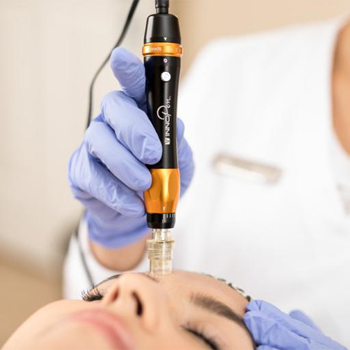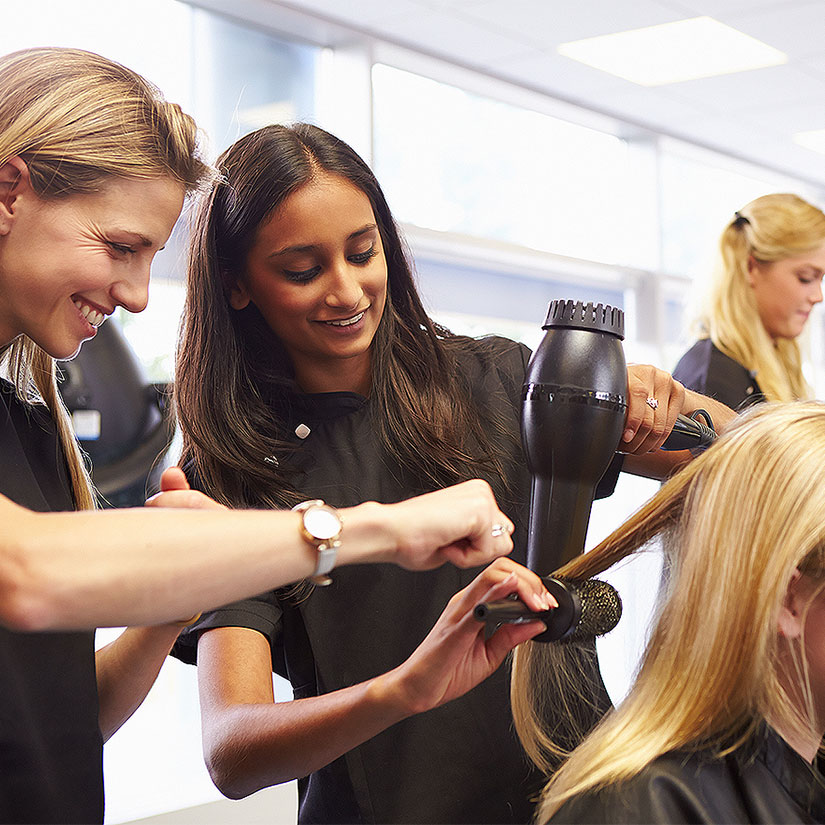Microneedling, also known as collagen induction therapy, has grown wildly popular over the past few years. Here’s everything you need to know about what microneedling is, how it’s done, and how it promotes collagen production.
What Is Microneedling?

Microneedling is a cosmetic procedure. It involves pricking the skin with small, sterilized needles. This intentionally creates tiny wounds. As the skin heals, it produces more collagen. This leads to more youthful-looking skin.
Collagen is a cellular protein occurring throughout the human body. In the skin, collagen provides firmness. As we age, our skin produces less collagen each year. Microneedling cues skin to produce the extra collagen it would not otherwise produce.
Microneedling is most often done to the face. However, other body parts such as the thighs and stomach can undergo microneedling as well.
A microneedling tool looks like a pen or roller covered in very small needles. It is sterilized, then rubbed over the treated area.
Benefits of Microneedling
Because microneedling causes skin cell turnover, it may help improve skin texture and skin tone. Acne, stretch marks, wrinkles, sun damage, and even hair loss can all be diminished.
Microneedling may reduce pore size as well, creating smoother skin.
Like microneedling, laser treatments are highly effective at improving skin quality. However, laser treatments can be four times as much money. Furthermore, laser treatments can be moderately painful. Microneedling causes at the most only minimal discomfort. Many patients experience no discomfort with microneedling at all.
Home Microneedling Procedures?
Home microneedling devices with very short needles are available for purchase. Many estheticians advise against such devices. An untrained person administering microneedling runs the risk of causing injury. He or she may not know how to properly sterilize the needles, increasing the risk of skin infection.
For best results, professional-grade microneedling devices must be used. These can be operated only by a licensed professional. Students can learn how to perform microneedling procedures in esthetician trade school.
What Happens During a Microneedling Procedure?

Before microneedling can begin, the esthetician will first cleanse the area being treated. Then they will apply numbing cream. The patient then waits for the numbing cream to absorb and reach full effectiveness. This can take between 20 and 30 minutes.
The actual microneedling procedure is quicker and can take between 10 and 20 minutes. The length of time needed depends on the size of the treated area.
After the treated area is numb, the esthetician cleans it again. They then rub the microneedling tool over the treated area. The micro cuts caused by the tool make the skin bleed. The esthetician then cleanses the treated area for a third time, applying a cream or serum.
How Often Should a Patient Get Microneedling?
Generally, estheticians recommend repeating microneedling sessions every 4 to 6 weeks. This gives time for skin cells to turn over before a new treatment. That being said, client needs will vary based on their skin health and goals.
Microneedling results are cumulative, meaning each successive visit causes greater improvements. Many people start seeing optimal results only after several sessions.
Microneedling Aftercare
Estheticians give patients specific instructions for after microneedling. General guidelines include a 24- to 72-hour period without direct sunlight, excessive heat, or sweating. Swimming and products with acid or Retinol should be avoided. Estheticians often encourage their patients to avoid makeup during this time as well.
Most patients recover from treatment after one to three days. Microneedling does not require intensive recovery.
The only symptom immediately after the procedure is red-looking skin. This subsides quickly as the skin cells turn over. After recovery, the skin looks better than before.





